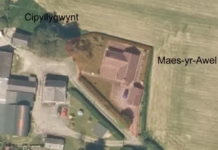We are on a highway to climate hell” were the opening words from the un secretary-general António Guterres at the cop27 climate summit that took place three months ago.
But have governments around the world changed their ways and already adapted to their different commitments made at COP27?
So far, there have been no commitments made in an agreement between the governments in working to phase out fossil fuels.
Some have already started to refer to the climate summit as a failure, a report from Raconteur has found that the 193 parties who signed the Paris Agreement in 2016 to lower carbon emissions have already proved to have a negative result.
The report found that those same parties will contribute to carbon emissions being 11% higher in 2030 than what they were in 2010.
Figure’s from the UK Office of National Statistics has found that the UK’s carbon dioxide emissions and other planet warming gases increased by 4.7% in 2021.
With the cost of living crisis being more prominent in the news and taking the biggest priority amongst the government and public, finding ways to reduce spending and financial hardships for people across the UK is currently taking more importance than what is happening with climate change.
Viessmann, the global heating company, has created a list of all the ways that you can make quick and simple swaps to reduce the amount of carbon emissions whilst also spending less to help protect the planet and ease the cost of living crisis.
What are the swaps you can make in your life?
- Go Into This Spring Using Smart Heating Control
As the winter season approaches and brings the colder weather along with the looming rise in energy bills, one way to save money and to prevent wasting heat in your home is to invest in a smart thermostat. These devices can connect your heating system to your phone through the wifi allowing you to choose when to turn the heating on in your house, which can be controlled even when you’re not in your house.
These can typically cost anywhere between £100 – £200 with a possible extra cost of £100 if you choose to have a professional install it in your home. According to Google Nest, this could save a household an average of 8.4 and 16.5% of the consumer’s energy use which would equate to saving around £110.
- Leave The Car At Home And Cycle to Work
In the UK, a petrol car has produced on average 170.5 grams of CO2 per kilometre (g CO2e per km) in 2022 according to Statista. Cyclescheme found that within a year, a car would cost £3,727 to run, compared to the simple swap which would be to ride your bike instead as that could cost a person £396 per year instead. Not only is this a great swap to save money, but also to reduce your carbon footprint dramatically as the car’s carbon emissions are 13 times more than a bike’s! So, this simple swap will lower your carbon footprint, save you money and keep you fit and healthy.
- Remember To Reduce, Reuse and Recycle
These three R’s are something we’ve heard repeated before, because they are three easy ways to lower our carbon footprint. By avoiding products with excessive packaging means there’ll be less waste, but also packaging for items uses additional energy. Also, by taking your steel and tin cans to your local recycling centre can save up to 74% of energy that’s needed to make new cans, whereas recycling aluminium cans saves 95% of the energy. Therefore, it’s important to remember not to throw all your waste away in the general bin or even consider if it could be reused?
- Swap Your Meat Diet and Become A Vegetarian
Making a change to your diet can not only improve your health, but also helps to reduce your carbon footprint. Recent research found that meat and dairy produce alone use 83% of farmland along with producing 60% of agriculture’s greenhouse gas emissions which are harmful towards our planet.
The Vegetarian Society have emphasised that by making the move to a vegetarian diet for a year, would save the amount of emissions equivalent to a family car not being on the roads for six months. If you’re not ready to go full veggie, then a flexitarian diet is becoming more on trend, which is predominantly a plant-based diet with an occasional inclusion of meat. This type of diet tends to be cheaper and also reduces carbon emissions.
- Avoid Fast Fashion and Buy Sustainably
Everyone always likes to update their wardrobe with new clothes, yet preferably the cheapest option is always better which is why many of us choose to go to fast fashion brands to give us that quick fix. Yet, due to the low quality of the clothes and one in three women finding the items to be outdated after three wears, can lead to fashion companies wasting 10,000 clothing items to the landfill every five minutes according to Keep Britain Tidy.
The fast fashion industry alone produces 10% of humanity’s carbon emissions. So, making the swap of fast fashion to buying sustainably through second-hand shops such as Depop or your local charity shop, is the best way to find high quality clothes which last longer. Some may be more expensive, yet spending that extra on clothes which last longer means you’ll save money from not having to buy clothes as often.

| [donate]
| Help keep news FREE for our readersSupporting your local community newspaper/online news outlet is crucial now more than ever. If you believe in independent journalism,then consider making a valuable contribution by making a one-time or monthly donation. We operate in rural areas where providing unbiased news can be challenging. |






















